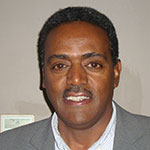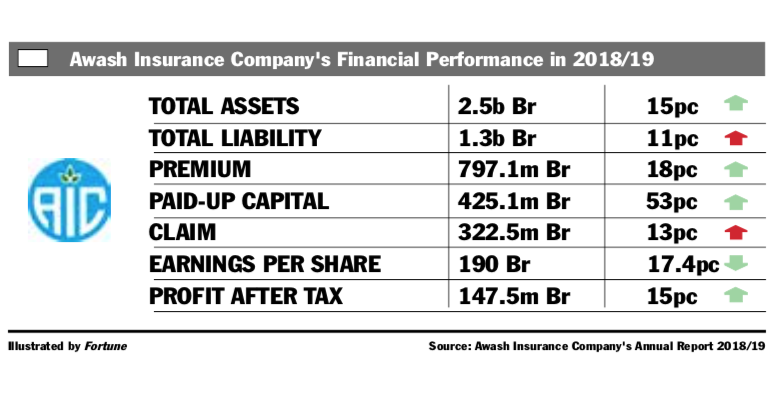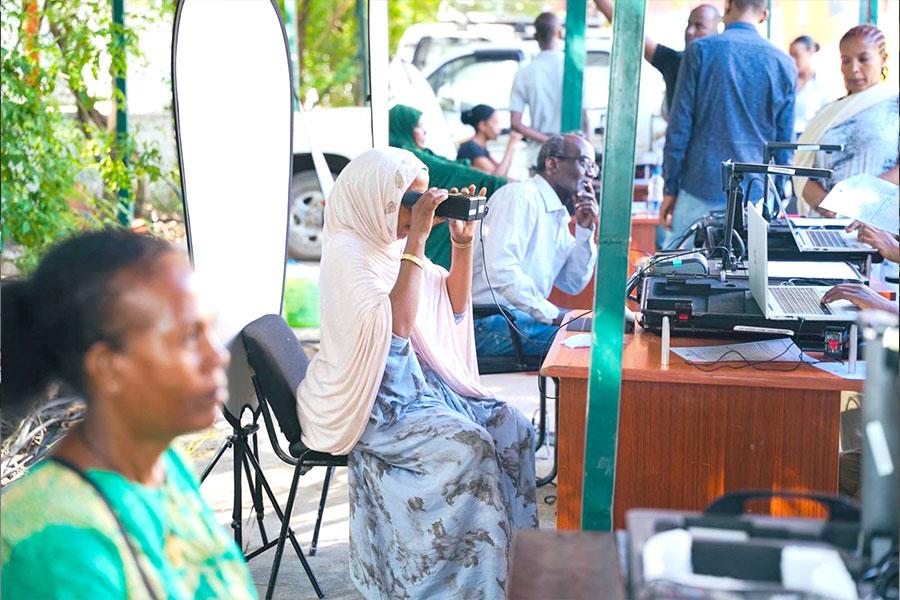
Radar | May 24,2025
Sep 19 , 2020
By Fisseha Mekuria (PhD)
Transforming Ethiopia into a digital society requires improving the quality of telecom services, innovation and digital small, micro and medium enterprises (SMMEs) creation in the sector by attracting investment and addressing the skills gap in the sector, writes Fisseha Mekuria (PhD) (fmekuria@csir.co.za), chief research scientist at the Council for Scientific & Industrial Research, South Africa. Opinions here are those of the author and do not reflect that of any organisation.
Transforming Ethiopia into a digital society, where all sectors of the economy benefit from the availability of improved information and communications technology (ICT) services, requires careful planning. It also demands guidance of the current effort toward a competitive telecom market and digital connectivity in Ethiopia.
The need for a competitive telecom environment is just as much motivated by the fast pace of development in ICT infrastructure and emerging digital technologies. This is not to mention the complexities associated with telecommunication and wireless ICT services proliferation. It, therefore, requires the involvement of multiple private-sector network service providers to be able to provide quality telecommunications and ICT services.
The existing single operator and limited private sector involvement in the provision of wireless and ICT services, have not given the necessary flexibility to attract innovation and investment. It is also limited in its capacity to address the growing Ethiopian population (now close to 100 million) with quality data, voice and broadband internet services. Furthermore, a competitive telecom sector is necessary to promote network innovations using new heterogeneous emerging technologies to improve both digital inclusion and the quality of ICT service provision to the masses.
ICT is globally regarded as a pillar of sustainable socioeconomic development. It is shrouded with security fears and has never been given the right competitive and innovative framework in Ethiopia. This has resulted in poor infrastructure rollouts, service provisions and thus negatively affected sustainable socioeconomic development in Ethiopia.
A new proclamation, which establishes the Ethiopian Communications Technology (ECA), tries to achieve a competitive and innovative telecom framework. This is motivated by the need to improve the national ICT infrastructure, attracting investment and improving the quality of telecom service. It is also expected that the move will accelerate innovation and digital small, medium and micro enterprises (SMMEs) business creation in the sector and, most importantly, lead Ethiopia toward the digital information society that most of the world is creating.
But there are some steps that need to be taken to achieve such goals. It may start by posing this question: Why invite only two private licensed operators?
This is actually a sound decision. Building a strong information technology regulatory body is essential before more operators are allowed. The newly established Communications Authority needs regulatory skills, development in analysing the different mobile ICT industry stakeholders, network monitoring tools, data science, technology standards and services trends. This also includes sustainability and impact on the national development plan.
But the Authority also needs to be forward-looking in the licensing of new operators and promotion of new and secure technologies as much as possible. This will provide a leapfrog opportunity by considering upcoming telecom standards that provide new emerging ICT technologies and services. Considerations have to be given on licensing and the price and performance comparison of the old global system for mobile communications (GSM) technologies – second-generation (2G) and third-generation (3G) - versus the new standards such as fourth-generation (4G) and fifth-generation (5G). The latter are secure and better performers than the old GSM generations in providing emerging ICT services.
With concern to digital inclusion and development goals, the ECA also needs to target and enforce mobile broadband coverage by new entrants to include urban and rural populations. Weight should be given to mobile operators with commitments and reliable solutions for affordable mobile broadband internet services in rural areas. Furthermore, the license could include service level agreements, especially for a nationwide licensee to be able to share access for spectrum with rural network operators. This should be followed with a business model for sustainable digital inclusion and reach to remote rural areas.
Technology neutrality for wireless ICT services under the proclamation needs to include, apart from the mobile generations’ wireless standards, local area network (LAN) standards (the IEEE 802.xx) and the recently emerging network technology, based on spectrum sharing promoted as television-white spaces (TVWS), broadband networks. Such networks operating as complementary technologies can extend affordable broadband internet connectivity to underserved areas.
Spectrum bands and the band plan for allocation are another concern. The band plan, apart from 900MHz, 1800MHz and 2100MHz, for 2600MHz and 3500 MHz, where 5G is being licensed, also needs to be considered. These might affect the deployment of a new generation of mobile technologies. Innovative spectrum sharing techniques are more and more available for increasing the capacity of wireless networks. This could allow smoother migration to a new mobile generation and lead to the effective utilisation of national spectrum resources for the benefit of connecting the unconnected.
The development of a strong regulatory framework for interconnection and network infrastructure sharing, including both passive and active network sharing, is critical. This will facilitate easy access to ICT infrastructure, improved operating conditions and the reduction of costs of mobile services.
All of these will undoubtedly affect Ethio telecom. It may experience a mass exodus of telecom engineers to well-paying foreign multinational operators and a loss of revenue to competitors. This could also create service disruptions to many millions of subscribers and existing ICT services.
As a result, the Authority should also be involved in ensuring that there is enough of a skilled workforce to meet the demand of the sector. The Authority should promote the development of excellence centres in ICT and institutions focusing on telecom engineering, IT and software skills, and telecom regulation and management streams should be revamped and given an excellence centre status. This will help accelerate the development of more expert telecom engineering, software skills and ICT technicians and engineers. They are necessary to fill the skills gap and create necessary job opportunities for young engineering and ICT technology graduates.
Ethio telecom and the new entrants should also be encouraged and incentivised to be involved in supporting telecom and ICT skills development in higher education. This should, in fact, be a consideration in the selection process of service providers, where they can be asked to come up with a framework and strategy to improve the skills gap of the sector, including regulatory and management skills.
Notable here is that it is not only fancy equipment that is a pillar of digital society. It is also ICT service management, technical regulation development and producing policy research evidence for government decision making on telecommunications and emerging digital technologies.
Therefore, the Authority and the network operators should create a national centre of excellence to promote research and innovation in network design, deployment, operations, heterogeneous network infrastructure and spectrum resource sharing. There is also affordable digital connectivity of rural and underserved areas.
Research on network access devices and standards compliance is just as important to promote the availability of affordable devices for public mobile ICT service provision. This would include monitoring the quality of service, complying with standards and pricing models for voice, data and internet services.
Going hand in hand with such considerations is the Authority’s capacity to suggest policy interventions, support and accelerate innovation and the creation of wireless technologies and providing rural community networks. This has a high potential for job creation and the needed socioeconomic development in the country.
ECA should perform technology foresight and build the capacity to perform research in telecom regulation and policy formulation. The development of a national cyber-security framework for the protection of ICT and other critical infrastructure in the networked digital society of the country is very important. Monitoring was easy with a single state-owned operator but will be difficult in the presence of several private network operators.
This means that the Authority will need a research arm and technology foresight study unit. The purpose of this would be to strengthen ECA as a capable technical regulator, policy initiator and enforcer, and to inform government and society on the ethical use of new and emerging ICT technologies. The latter part is critical as we live in the brave new world of social networks enabled by artificial intelligence, machine learning, cybersecurity and automation.
Proliferation of ICT services, overseen by a capable regulator, can create the opportunity for accelerated development and achievement of an inclusive digital society. Ethio telecom and the new entrants should thus be urged to open their development labs to young innovators. This will allow them to develop new and innovative mobile and ICT applications relevant to the local context and international consumption.
ECA should also encourage and incentivise telecom operators to build strong links and support ICT skills development locally, in collaboration with higher education. This will result in expert skills and human-power development, leading to new ways of harnessing the emerging science, engineering and information technology tools for the benefit of society.
A digital society needs to empower its young innovators with skills to create innovative small, micro and medium digital enterprises and services. As exemplified by the UN-sustainable Development Goals, emerging digital technologies and multi-disciplinary scientific engagement, digital connectivity, and ICT services are crucial contributors to the improvement of life in the world and protection of future generations from a catastrophic environmental disaster.
Hopefully, the ECA and stakeholders of the telecom sector will work together to create a virtuous ecosystem for ICT service innovation, sustainable digital connectivity and green digital industries. Let us all join hands and contribute to the creation of a socio-economically empowered digital society.
PUBLISHED ON
Sep 19,2020 [ VOL
21 , NO
1064]


Radar | May 24,2025

Radar | Apr 01,2024

Fortune News | Aug 31,2019

Radar | Nov 16,2019

Radar | Jun 12,2023

Radar | Apr 01,2024

Fortune News | Mar 07,2020

Radar | Jul 07,2024

Fortune News | Dec 08,2024

Radar | Aug 12,2023

My Opinion | 131970 Views | Aug 14,2021

My Opinion | 128359 Views | Aug 21,2021

My Opinion | 126297 Views | Sep 10,2021

My Opinion | 123913 Views | Aug 07,2021

Dec 22 , 2024 . By TIZITA SHEWAFERAW
Charged with transforming colossal state-owned enterprises into modern and competitiv...

Aug 18 , 2024 . By AKSAH ITALO
Although predictable Yonas Zerihun's job in the ride-hailing service is not immune to...

Jul 28 , 2024 . By TIZITA SHEWAFERAW
Unhabitual, perhaps too many, Samuel Gebreyohannes, 38, used to occasionally enjoy a couple of beers at breakfast. However, he recently swit...

Jul 13 , 2024 . By AKSAH ITALO
Investors who rely on tractors, trucks, and field vehicles for commuting, transporting commodities, and f...

Jul 5 , 2025
Six years ago, Ethiopia was the darling of international liberal commentators. A year...

Jun 28 , 2025
Meseret Damtie, the assertive auditor general, has never been shy about naming names...

Jun 21 , 2025
A well-worn adage says, “Budget is not destiny, but it is direction.” Examining t...

Jun 14 , 2025
Yet again, the Horn of Africa is bracing for trouble. A region already frayed by wars...

Jul 6 , 2025 . By BEZAWIT HULUAGER
The federal legislature gave Prime Minister Abiy Ahmed (PhD) what he wanted: a 1.9 tr...

Jul 6 , 2025 . By YITBAREK GETACHEW
In a city rising skyward at breakneck speed, a reckoning has arrived. Authorities in...

Jul 6 , 2025 . By NAHOM AYELE
A landmark directive from the Ministry of Finance signals a paradigm shift in the cou...

Jul 6 , 2025 . By NAHOM AYELE
Awash Bank has announced plans to establish a dedicated investment banking subsidiary...